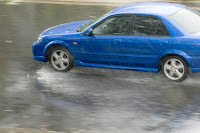If you are attacked and bitten by a dog, you may be entitled to damages for the injuries you suffer. Although some dogs are known to be more prone to biting than others, when you are bitten it does not matter what the breed is. All dogs have sharp teeth.
Pennsylvania, like all states, has a time limit in which to file a personal injury action. Different rules apply to different situations, so it is best to obtain legal represenation immediately to make sure you are covered and do not miss the deadlines.
You should act now to speak to an attorney who can help you. When a dog bite occurs, records must be obtained, photos must be taken and the appropriate claims must be reported to the insurance companies involved. The longer you wait, the harder it is to take control of the situation.
The claim for damages is handled by the homeowners’ insurance policy maintained by the dog owner. Close to one third of claims against homeowners’ policies are for dog bite attacks. The dog owner is responsible for the behavior of the dog. There is no need to worry if the owner is a neighbor or a friend...the insurance company handles the matter for them. This is why we all have homeowners’ policies and this is why we pay our premiums.
The damages involved can include the medical expenses, current and future, lost wages, pain and suffering, disfigurement and scarring and emotional damages. The emotional damages from a dog bite can be devastating. Most scars require at least a year for a doctor to determine the course of treatment and whether the scar is permanent and requires plasctic surgery.
Children are subject to dog bites and are particularly vulnerable to bites around the head and face. They simply do not know how to protect themselves. The emotional trauma to them will last a lifetime. Treatment for a child may have to wait even longer than a year.
Pennsylvania has a hybrid approach to liability. There is strict liability for all damages incurred if the dog previously exhibited dangerous behavior or if the injuries are severe. There is also strict liability for medical bills. Other circumstances giving rise to laiblity occur where the owner was negligent or violated the animal control law, which requires that owners keep their dogs under control, either confined at home, or on a leash when away from the home.
Important Steps to Take After a Dog Bite
SOME USEFUL LINKS:
http://www.puppiesndogs.com/dogbiteprevention.php
http://www.dogbitelaw.com/PAGES/Pennsylvania.html
http://www.pacode.com/secure/data/007/chapter27.html
http://www.dogbitelaw.com/
http://www.dogexpert.com/
http://www.doggonesafe.com/
http://www.dogsbite.org/
Call me at 215.752-3732 or visit me at
http://www.jjsassoc.net
Pennsylvania, like all states, has a time limit in which to file a personal injury action. Different rules apply to different situations, so it is best to obtain legal represenation immediately to make sure you are covered and do not miss the deadlines.
You should act now to speak to an attorney who can help you. When a dog bite occurs, records must be obtained, photos must be taken and the appropriate claims must be reported to the insurance companies involved. The longer you wait, the harder it is to take control of the situation.
The claim for damages is handled by the homeowners’ insurance policy maintained by the dog owner. Close to one third of claims against homeowners’ policies are for dog bite attacks. The dog owner is responsible for the behavior of the dog. There is no need to worry if the owner is a neighbor or a friend...the insurance company handles the matter for them. This is why we all have homeowners’ policies and this is why we pay our premiums.
The damages involved can include the medical expenses, current and future, lost wages, pain and suffering, disfigurement and scarring and emotional damages. The emotional damages from a dog bite can be devastating. Most scars require at least a year for a doctor to determine the course of treatment and whether the scar is permanent and requires plasctic surgery.
Children are subject to dog bites and are particularly vulnerable to bites around the head and face. They simply do not know how to protect themselves. The emotional trauma to them will last a lifetime. Treatment for a child may have to wait even longer than a year.
Pennsylvania has a hybrid approach to liability. There is strict liability for all damages incurred if the dog previously exhibited dangerous behavior or if the injuries are severe. There is also strict liability for medical bills. Other circumstances giving rise to laiblity occur where the owner was negligent or violated the animal control law, which requires that owners keep their dogs under control, either confined at home, or on a leash when away from the home.
Important Steps to Take After a Dog Bite
- Seek immediate medical attention — even if it seems like a minor bite-this is especially important if the dog is not current on shots.
- Take photographs of all injuries, even before there is cleanup of the wounds, and after cleanup of the wounds. See this page for instruction on taking photos: http://www.jjsassoc.net/Preserving_Evidencel.htm
- Gather information from witnesses, if there were any. Get names, addresses, and phone numbers.
- Report the matter immediately to the police. This creates a record of the incident.
- Obtain the dog's veterinarian records about shots, diseases and other medical history.
- Do not try to negotiate with the animal's owner privately. Make sure that the claim is directed to their homeowner’s insurer. It is best not to engage in conversations about this matter with the owner.
- Talk to an experienced personal injury attorney as soon as possible.
SOME USEFUL LINKS:
http://www.puppiesndogs.com/dogbiteprevention.php
http://www.dogbitelaw.com/PAGES/Pennsylvania.html
http://www.pacode.com/secure/data/007/chapter27.html
http://www.dogbitelaw.com/
http://www.dogexpert.com/
http://www.doggonesafe.com/
http://www.dogsbite.org/
Call me at 215.752-3732 or visit me at
http://www.jjsassoc.net









